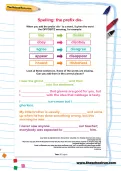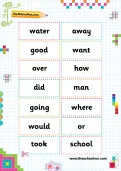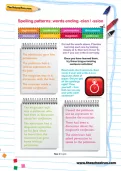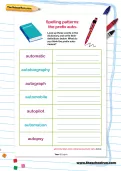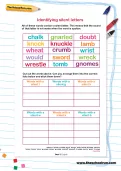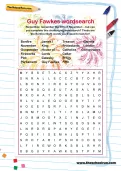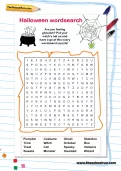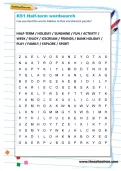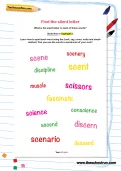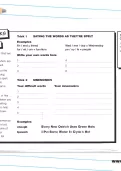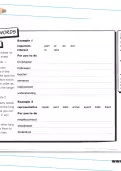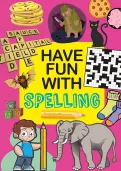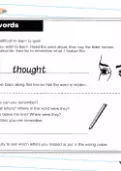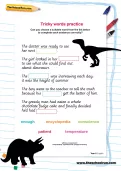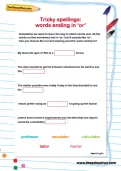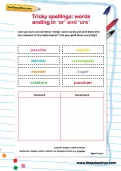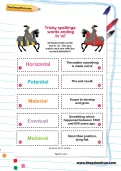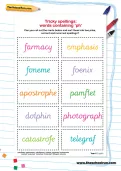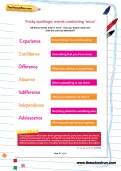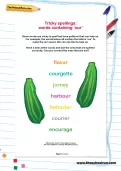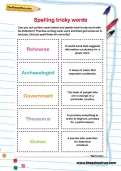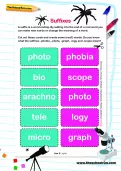Remember, remember the fifth of November… but can you complete this challenging wordsearch?
or
Register to add to your saved resources
A spook-tacular wordsearch that your child can do in preparation for Halloween!
or
Register to add to your saved resources
Use this wordsearch during half-term to help your child with vocabulary and spelling while recognising words that are all about having fun!
or
Register to add to your saved resources
Spelling words with silent letters can be tricky, but help your child remember to watch for them with this practice worksheet.
or
Register to add to your saved resources
Already a subscriber? to view this content.
Teach your KS2 child these two simple tricks to help them remember how to spell words which don't follow the usual rules.
or
Register to add to your saved resources
Already a subscriber? to view this content.
Challenge your child to find short words within longer words, then create and spell new words using a limited number of letters.
or
Register to add to your saved resources
Already a subscriber? to view this content.
Does your child’s spelling really let their writing down? Have fun with spelling offers you practical and effective strategies to help support your child’s learning at home, based on a real understanding of how spelling is taught and why it’s tricky to master. The bad news? Your child will be beating you at Scrabble before you know it!
or
Register to add to your saved resources
Already a subscriber? to view this content.
This worksheet gives suggestions on how to memorise the spelling of the word 'thought'. The strategies here could be applied to other tricky words.
or
Register to add to your saved resources
Already a subscriber? to view this content.
This worksheet lists incomplete sentences which need to be completed by choosing from the list of tricky words at the bottom.
or
Register to add to your saved resources
Already a subscriber? to view this content.
This worksheet lists words ending in ‘or’ that, when spoken, make the ‘er’ sound. Children need to choose the correct word to complete the sentence.
or
Register to add to your saved resources
Already a subscriber? to view this content.
This worksheet lists words that end ‘ar’ or ‘ure’. Children need to cut them up and then arrange them into the ‘correct’ or ‘incorrect’ boxes.
or
Register to add to your saved resources
Already a subscriber? to view this content.
This worksheet lists words that are tricky to spell ending in ‘al’. Children need to cut up the words and definitions and then match them up.
or
Register to add to your saved resources
Already a subscriber? to view this content.
Children need to cut out the words and then sort them into ‘correct’ and ‘incorrect’ piles. The words should all contain ‘ph’.
or
Register to add to your saved resources
A list of words ending ‘ence’ with muddled-up definitions. Children need to read the definitions and then match them to the right word.
or
Register to add to your saved resources
Already a subscriber? to view this content.
A list of sentences with words missing. Children need to choose from the list of words containing ‘our’ in order to complete the sentences.
or
Register to add to your saved resources
Already a subscriber? to view this content.
This worksheet gives a list of words that should be spelt with ‘our’. Some are spelled correctly and some are not. Children are encouraged to look for the words that are not spelled correctly and then correct them.
or
Register to add to your saved resources
Already a subscriber? to view this content.
This worksheet involves a list of words with tricky spellings. Children need to cut out the cards and match the words to their definitions. They are then encouraged to practise spelling the words.
or
Register to add to your saved resources
Already a subscriber? to view this content.
Encourage your child to put these words with tricky spellings into alphabetical order.
or
Register to add to your saved resources
Already a subscriber? to view this content.
Your child needs to read the incomplete sentences and then choose a word from the list at the bottom to complete it. Each word in the list contains an unstressed vowel.
or
Register to add to your saved resources
Already a subscriber? to view this content.
This worksheet includes words with suffixes which have been divided into two halves. Children need to cut these cards up and then arrange them back into whole words.
or
Register to add to your saved resources
Already a subscriber? to view this content.
